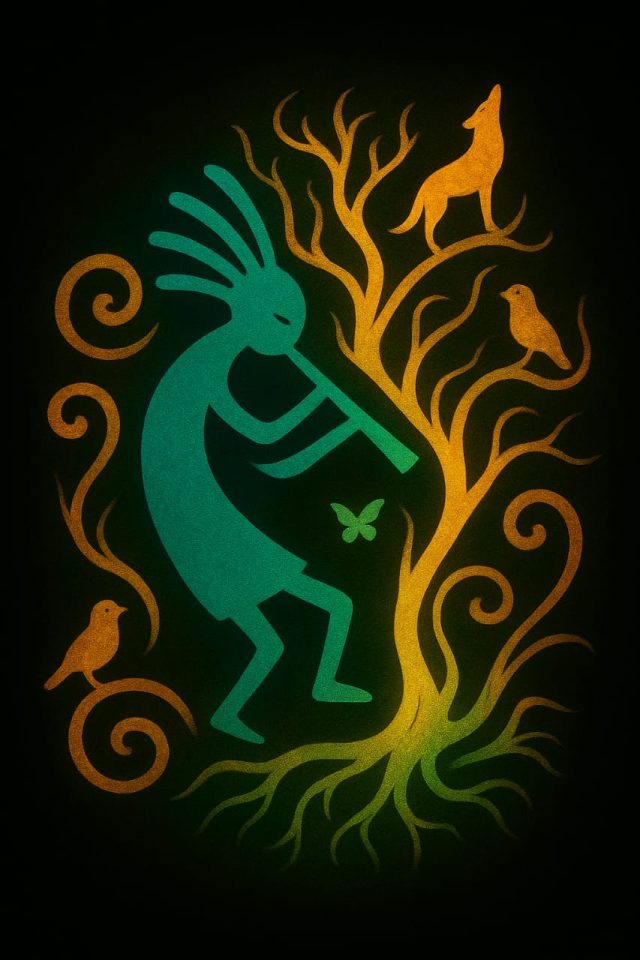Everyone has interesting stories to tell. If you have a story about how stories change lives and organizations that you’d like to share, send us an email at info@storytelling.co.za
Astroturf and the manipulation of media – TedX University of Nevada
Investigative journalist Sharyl Attkisson shows how astroturf, or fake grassroots movements funded by political, corporate, or other special interests very effectively manipulate and distort media messages. You’ll see the ‘net differently after you watch this.
Storytelling and the world of work
At first the idea may seem a little puzzling – what has storytelling got to do with the world of work? Well, quite a lot it seems. Think of this – whatever we know of the world and of ourselves is grounded in story; either stories that we have been told or stories that we’ve made up ourselves – of a combination of the two. And…
The edge of the village
Once there was, and once there was not that a traveler arrived at the outskirts of a village where he saw an old man sitting on a rock. ‘What kind of people live in this village?’ Asked the traveller. ‘First, tell me where have you come from and what were the people like there?’ Answered the old man. ‘I’ve just walked from the village across the…
How to use the opening lines of a story
The way the story starts has a lot to do with tradition and culture and a whole lot to do with holding attention of the reader and the listener. Here are some samples: Once upon a time……this is the favourite opening line of the western storytelling traditon In the long time past, our Story Tellers tell us that…..from native American tradition Once there was, and once…
How to take charge of the story?
Leadership, who should be able to take an objective view of everything that is happening in an organisation, usually become increasingly removed from the inner story circles. And often when they hear the stories, they will have been sanitised and edited because thats what everyone wants leadership to know. By their absence from the day-to-day story-sharing opportunities, they may lose touch with the nuances of happiness,…
Metaphors of the mind
Exactly how to portray the human mind has preoccupied philosophers for centuries and more recently psychologists, educationalists and physiologists have contributed to the debate. [technology creates new metaphors, tools to manipulate our experience that create our stance towards the world]. With the advent of information and communications technology, the brain has been compared to a computer that processes in a logical, consistent and systematic way. Sylvester…
Refugee Workshop
The Refugee Workshop is designed to guide individuals who have experienced forced displacement through the multifaceted journey of healing, adaptation, and rebuilding their lives in a new country. It serves as a companion for refugees and their immense courage, strength, and resilience required to navigate a challenging transition. At its core, the Refugee Workshop operates on the premise that every refugee’s life is a powerful story—a…
Narrative Medicine and how it is used
Professions such as Social Work, Medicine and Psychology are becoming increasingly aware of the therapeutic properties of writing and storytelling and there are numerous examples of how people of all ages face and overcome life’s challenges through the art of telling their stories. Everyone understands the important role of stress in life experience. The relief of stress and stressors by narrative (either verbal or in writing)…
Relationships with brands and how they are developed
I know exactly how I fell in love. There are some of us who are not very smart around technology. Our thinking tends to be more in the realm of ideas and random connections than remembering what F9 does. We get nervous and confused rather quickly and feel inadequate, especially when we’re around techno-wizards. After years of bashing out copy on sturdy contraptions that were really…
Narrative collapse: when stories disintegrate
All stories have a shelf life, a time beyond which they start to fall apart and forgotten. This is a natural and normal process and applies to all entities that make use of stories. Empires, kingdoms and reputations are all ultimately narrative based; all political and economic power is contained in story. Since all power is story based, it is important to pay attention to signs of narrative…
Brand and Brandstory Assessment
Leadership and Exco Teambuild
We provide leadership and Exco fireside storytelling teambuilding in a boma/fireside environment. Traditionally, it is in the boma where, it is said, the best stories were told and the biggest decisions taken. It is a powerful and memorable way of getting everyone ‘onto the same page’ using an African dilemma tale approach. Everyone participates in reflecting on and telling the story of the past, the present…
The power of edutainment to change behaviour
The greatest stories are all about change. What does a story have to do to change someone’s behaviour? Well, we should firstly admit that it is not just the story that changes people, but whole communities talking about stories. Behind all behaviour patterns and thought patterns lies the “weight of past experience”. That experience determines the way we interpret future experience. Our past calls our future…
Creative Conflict Management
Conflict manifests in many ways in an organization. At times it rises to the surface in the form of defensiveness, disagreements or uncooperative behaviour. Most of the time, however, it remains hidden and is evident from symptoms such as poor morale, high staff turnover and absenteeism, lack of enthusiasm, alternative forms of organisational communication embodied in “the grapevine” and frequent confrontations. This facilitated presentation addresses important…
Language as an immune response
The immune system in our body is responsible for any defensive reaction against foreign material. Language acts as an immune response, keeping the world in a shape we are familiar with, keeping new and potentially “unnecessary” experience out. The “unnecessary” experience guarded by language could include: Ideas that are incompatible with our beliefs and the way we experience the world Experiences that we have not been…
It’s not just the conversations we have but it’s also the taboo conversations that define us
Typically in organisations, people converse around certain topics and experiences. And in day to day interactions they observe things that happen; what people say and what people actually end up doing. Dissonance and paradox emerge when what people say doesn’t align with what they do. Cliques forms, stories are shared, grapevines are energised and subcultures are formed. The result may be that informal communication networks have…
A tale of exotic ducks : supporting complex change
This story was developed for a large organisation that had, at the time, a number of IT outsource partners that needed to work together more efficiently within the same infrastructure. Everyone had a very different view of “what was going on” and there were frequent conflicts and system problems. Rationalisation and downsizing was in the air. A allegorical/anagogic story was developed to get everyone onto the…
Storytelling in the Digital Age
This facilitated workshop is designed to help you create, evaluate and tell stories in the digital space. You’ll acquire know-how on how stories work in an individual and organisational context; how they are constructed and told. Explore how stories stimulate relationships, co-operation, change, innovation and stability. Good stories can facilitate directed change in attitudes and behaviours in stakeholders, customers, suppliers and employees. This workshop is designed…
The Hero’s Journey
The Hero’s Journey is a common narrative pattern and template where the protagonist embarks on an adventure, faces challenges and temptations, achieves victory, and returns home transformed. This journey often begins in the ordinary world, where the hero receives a call to adventure. They may initially refuse this call, but eventually cross the threshold into an unknown world. Here, they face tests, encounter allies and enemies,…
The Story of the Star Maiden
This story based on on a story told in Sir Laurens van der Post’s book “The Heart of the Hunter” Once upon a time… on the edge of the dry Kalahari desert, there farmed a bushman farmer. He had crops and a few cows and, though he was relatively content, he did so wish that he would one day have a wife to share his life….
The Story of the Cloud
Early one morning a wispy cloud bumped into a story…..
Isivivane for change and Co-operation
Isivivane is a Zulu word that refers to a concept found in a number of other African cultures. In Zulu, Isivivane literally means ‘throw your stone upon the pile…’ and refers to rocks arranged as piles and / or hub and spoke patterns. Once upon a time, stones were used in the ancient world to mark places of spiritual, astronomical and historical significance. The modern world…
A tall story – Peering into other ponds
I was staring into the distance at nothing in particular when it occurred to me that everything is a story, a narrative. Each one of us is a unique narrative with a beginning and an end. In that narrative there are chapters, sub-sections, paragraphs, sentences and words. But it’s a juicy story, filled with pictures, sounds, smells and things – all bound together with drippy or red…
Story and conflict
Conflict is an essential element of story; without it, there’s no real framework around which to develop a story. Without conflict, there is no need for a hero and no reason to change. It is not surprising that conflict in an organisation is normally seen as something to avoid at all cost. What sane person would want tension between people and departments? There could be open…
Benefits of Organizational Storytelling
Quick, holistic communications: Stories communicate ideas holistically. As a result, listeners can quickly understand and acquire complicated ideas. Natural Communications: We all learn about the world through stories. Whatever it is we know has either been communicated to us via a story or it is encompassed in a story that we have created. We learn story as soon as we acquire language; and we actually think…
The Five Keys to success
The first key: Knowing what you want Successful people know what they want. They know who they want to be and where they want to go. In other words, they have a very clear picture of what success means to them. Do you know what you want? This is the first step to power and to success. If you do not know what you want you…
How the Monkeys Saved the Fish
That year, the rains were the strongest ever and the river had broken its banks. There were floods everywhere and the animals all ran up into the hills. The floods came so fast that many drowned except the lucky monkeys who were used to swinging high up in the treetops. They looked down on the surface of the water where the fish were swimming and jumping…
Storytelling and Gaming
A selection of resources on the intersection of storytelling and gaming – moral physics, dramatic agency, social sculpture, Future of Storytelling Speaker: Janet Murray Professor, eTV Researcher, & Author, “Hamlet on the Holodeck”
Types of stories and what they’re used for
Stories are used for many different purposes in organisations ranging from literal day-to-day stories through specialised stories designed to stimulate change, develop people and teams and even describe the organisations’ future. Stories as used in organisations can be broken down in three major kinds: Literal Stories – Literal stories appeal to the logical mind and contain facts, dates, times, places and numbersAllegorical Stories – The Allegorical…
Private conversations: thinking about thinking
We all know about private converations, the conversations you have with someone else that you don’t talk about once you’ve had them. There is another category of private conversation that is the most private of private converations – the conversations that happen in the mind. This is sometime called ‘thinking’.
Views: 286

















